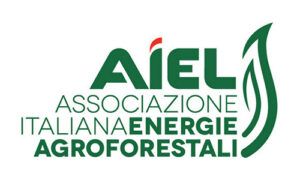Italy needs a 10-year plan to reduce emissions from the domestic burning of wood biomass by 70%
Domestic heating across Italy, as in other European countries, is a significant source of particulate which nationally represents 54% of PM10 emissions (Ispra 2020), thereby ranking as the primary source. These emissions are mainly generated by biomass burning which ranks third as the source generating the most atmospheric particulate, and represents 50% of the primary PM10 emission (Arpae 2019).
Nevertheless, most of these emissions come from the stoves of dated fireplaces, usually characterised by outdated combustion technologies. More than 70% of wood and pellet appliances installed in Italy are more than 10 years old, approximately 6.3 million, and contribute to 86% of the PM10 emissions generated through domestic biomass burning (Aiel, 2020). As old and inefficient domestic stoves represent the main source of particulate deriving from domestic heating, they must therefore be limited and their replacement with modern and efficient wood and pellet heating systems must be encouraged. Modern biomass appliances are in fact characterised by PM10 emissions that are 4 to 8 times lower than obsolete technologies. Generally, a wood stove installed more than 10 years ago presents emission factors of more than 480 mg/Nm3 while a modern insert or a modern stove has emissions between 20 and 30 mg/Nm3. Open fireplaces, which are still the most common wood appliance in Italy today, have emission factors exceeding 860 mg/Nm3.
The technological turnover, i.e. the replacement of appliances characterised by obsolete burning processes with modern technologies, represents a realistic solution that the sector can uphold to meaningfully contribute to reducing the impact of domestic wood and pellet burning on air quality. Nevertheless, solely replacing technologically outdated generators is not enough to guarantee appreciable results and a significant leap in improving air quality. In fact, it will be crucial to start a broad “awareness creating” action among end-users, especially those who burn wood. This is essential, as if the appliance is not used correctly, it can cause an increase in PM10 emissions and organic carbon, which is responsible for the formation of organic and secondary particulate in the atmosphere - as much as 10 times more in comparison to optimal use.
The intention of the biomass heating sector, as the first party to take action, is to actively work towards improving air quality. In order for this to be possible, it is necessary to implement, in partnership with the competent ministers and local reference bodies, an organic framework of planned actions, i.e. an action plan that makes it possible to turn the strategic objective into tangible results. The sector is therefore asking to be supported in this virtuous journey and demands the need for a national plan that may only be actuated through the support of the political world and the competent institutions if they take it on as their own, with a strategic and political view.
Download the full reports below
Italian version:
- Serve un piano nazionale di azione per ridurre del 70% in 10 anni le emissioni di PM10 della combustione domestica da biomassa
- Rottamare ed educare, le proposte di Aiel al mondo politico e alle istituzioni per costruire insieme un piano decennale di azione
English version:
- Italy needs a 10-year plan to reduce emissions from the domestic burning of wood biomass by 70%
- Scrapping and creating awareness, Aiel’s suggestions to the world of politics and institutions to build a ten-year plan together
 Annalisa Paniz is the Director of General Affairs and International Relations at Associazione Italiana Energie Forestali (AIEL ) and Vice-President of the European Pellet Council (EPC). AIEL is the association representing Italian companies operating along the wood-energy supply chain: from producers of woody biofuels (wood, wood chips, pellets) to producers of technologies to transform these biofuels into heat and energy (stoves, inserts chimney, boilers, cogeneration groups). The goal is to ensure the correct and sustainable energy enhancement of agroforestry biomass, in particular, woody biofuels at all levels, from the forest to the fireplace.More info: www.aielenergia.it or segreteria.aiel@cia.it
Annalisa Paniz is the Director of General Affairs and International Relations at Associazione Italiana Energie Forestali (AIEL ) and Vice-President of the European Pellet Council (EPC). AIEL is the association representing Italian companies operating along the wood-energy supply chain: from producers of woody biofuels (wood, wood chips, pellets) to producers of technologies to transform these biofuels into heat and energy (stoves, inserts chimney, boilers, cogeneration groups). The goal is to ensure the correct and sustainable energy enhancement of agroforestry biomass, in particular, woody biofuels at all levels, from the forest to the fireplace.More info: www.aielenergia.it or segreteria.aiel@cia.it

